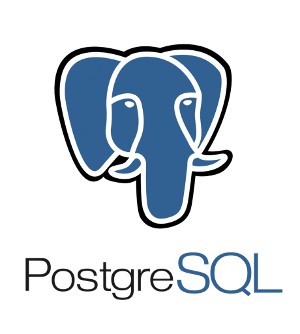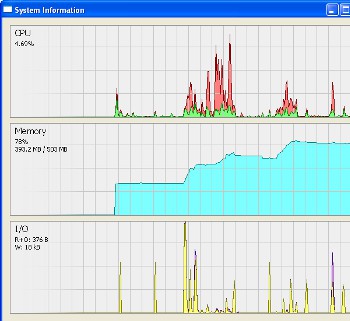Diane and I were watching the Austin local news two weeks ago and one of the features was about a guy who made 60K a…
FOSS Force
Anyone who runs sites using the WordPress platform and the plugin Simple Ads Manager will want to read this and learn from our mistake. Even those not using this particular plugin, but who have deactivated plugins not being used but still residing on their servers might find this useful. Luckily, in our case no harm was done, but that’s only because the incident occurred on a test site, so we were able to just take the site down. Lucky for us, it wasn’t FOSS Force or one of our other active sites.
Early Saturday evening we began receiving numerous email notices with two worrisome subject lines from our server. One subject was “LOCALRELAY Alert for sitename,” being sent to us at the rate of about every five minutes, with each showing info on the “first ten of 101 emails” that had been sent by the server since the last email notification. The other subject, “Script Alert for /path/to/script” was coming with the same frequency. To make a long story short, someone had hacked into a site we use to evaluate and test WordPress plugins before possibly deploying them on active sites, and was using it to send spam. Our test site had been turned into a spambot in other words.
Before Google, search engines didn’t get in the way too much.
This isn’t necessarily Google’s fault. There were a lot fewer websites then, and also many fewer people looking for them. Even then, however, unscrupulous web designers were working overtime to scam the system in an effort to gain ranking — which is why search engines now only pay scant attention to the “keyword” meta tag, which is so often stuffed with keyword spam that it’s not to be trusted.
Obviously, search engine ranking is important because it’s one of the main ways people find a site. People can’t read content they can’t find. And if nobody finds a site’s content to read it, what’s the use of writing it? So getting an article off of page twenty in a search result and onto page one is key — which is why you read so much about SEO, or “search engine optimization.”
SEO is basically giving Google what Google wants, for the purpose of improving the chances of getting a page to the top of a search list. For content sites, SEO can be sort of a deal with the devil, as writers who pay too much attention to “best SEO practices” will find that doing so will effect the quality of their writing.
We’re going to take the scenic route in getting to the point today. If you don’t want to wait, you can go down to the bottom where it says, “The moral of the story…” But the point of today’s exercise is that we in the decentralized FOSS realm are a creative bunch, and in that creativity is our strength.

The Starbucks in San Jose near James Lick High School seems to always be abuzz — kids from the school come in for coffee and other Starbucks treats, all the while being served by a quick and helpful staff, one of whom couldn’t stop talking in loud tones about his new opportunity in a nearby, more prestigious Starbucks.
The after-school high school crowd seems to be supplanted, eventually, by moms picking up their elementary school-aged children and bringing them to Starbucks. While I’m sitting in a way-too-comfortable chair, two girls walk up to me.
They stare. I look up, smile, and go back to work. I can still feel them staring at me.
One points and says, “elefante,” which is Spanish for “elephant.”
Back when Edward Snowden first began revealing details of the depth of NSA spying on foreign governments and companies, as well as U.S. citizens, I said that this would end up costing U.S. tech companies dearly. Now we’re beginning to see just how much: $47 billion according to Forrester Research. As large as that figure is, it could have been worse. Back in 2013, the folks at Forrester were estimating that the stateside tech industry would take a $180 billion hit.
By design, the research company’s numbers don’t reflect the amount of money spent by U.S. taxpayers funding the NSA’s operations. Nor do they indicate how much of this $47 billion is being born by the likes of Microsoft and Oracle, as far as I can tell. What I do know is that many foreign governments have been publicly investing in Linux and open source projects since Snowden’s revelations that back doors for the NSA have been built into many proprietary U.S. enterprise software products.
With Lots O’ LibrePlanet Pics!
It was like a roundhouse punch to the side of the head from the Good News Fairy — the news that Reglue was chosen for the Free Software Foundation’s (FSF) Award for Projects of Social Benefit to be handed-out in Cambridge at LibrePlanet.
At MIT, the conference venue, I was also surprised by the large attendance, but more than that, by the number of people who traveled across oceans to be there. Beforehand, I received emails from Venezuela, South Africa, all parts of the EU, and one from Georgia. And no, not the Georgia bordering Tennessee.






 Late last year, I was told that the area treated for throat cancer in 2012 was exhibiting pre-cancerous activity. I was told that it could remain “pre-cancerous” for twenty years, or it could again form into the cancer that tried to kill me in 2012. If that happened and it remained unattended, it would kill me in a matter of months. My options ranged from doing nothing and taking my chances, all the way to having my larynx removed to be done with this throat cancer monster once and for all. I picked door number two.
Late last year, I was told that the area treated for throat cancer in 2012 was exhibiting pre-cancerous activity. I was told that it could remain “pre-cancerous” for twenty years, or it could again form into the cancer that tried to kill me in 2012. If that happened and it remained unattended, it would kill me in a matter of months. My options ranged from doing nothing and taking my chances, all the way to having my larynx removed to be done with this throat cancer monster once and for all. I picked door number two.


